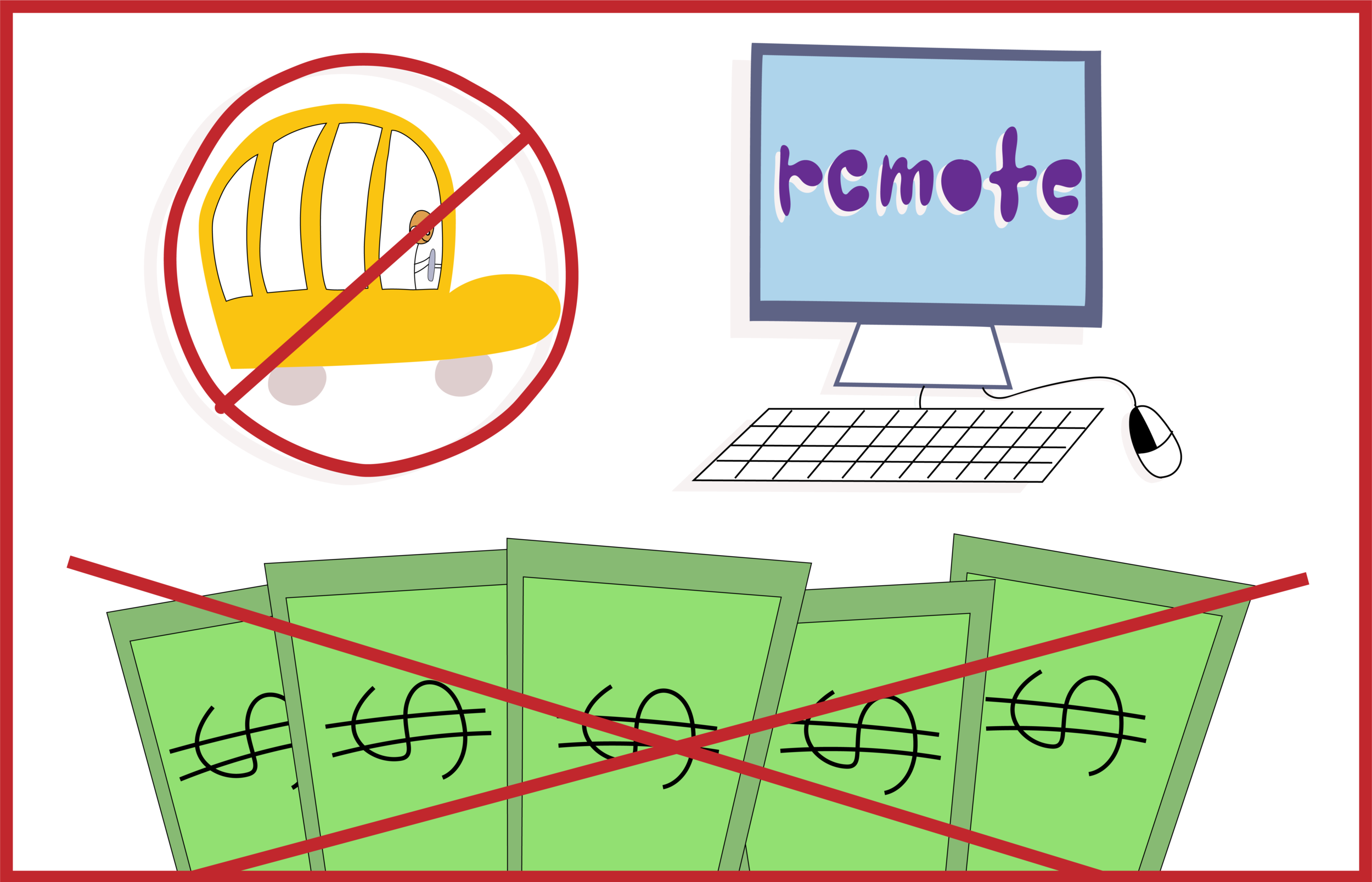Northview hourly workers’ pay withheld
Following the switch to remote learning, hourly workers did not receive their regular paychecksGraphic by Krystal Wu, Social Media Editor
Bedansh Pandey, Copy Editor & Disha Kumar, Features Editor
The week of Jan. 3, 2022, Fulton County Schools (FCS) switched to remote learning due to a surge in COVID-19 cases. This switch to virtual learning was the first since the 2020-2021 school year and thus, the school system’s “no work, no pay policy” came into effect for hourly employees such as bus drivers, cafeteria workers, and custodians. For three days, these workers were not paid.
“Devastating. It was devastating,” Felicia Thompson, an FCS bus driver, said. “It’s hard on a lot of different people for a lot of different reasons, especially if you’re living paycheck to paycheck, and a lot of us bus drivers do.”
When asked about the concerns of these hourly employees, Brian Downey, principal of Northview, pointed out their legal status as employees of FCS, not Northview. Such a distinction creates a fine line between school and county autonomy over the decisions regarding worker pay.
“The bus drivers don’t work for Northview, so I don’t supervise them, and I don’t evaluate them. I’m just not connected to them, and the same is true for cafeteria workers,” Downey said. “I want to come up with a solution to make it right, which I don’t have. At the local level, there’s not much we can do.”
At the county level, officials did not account for remote learning days in the annual budget, meaning that they budgeted for these hourly workers to get paid on the days that the county switched to remote learning. Chief Communication Officer Bryan Noyes for the Fulton County School district explained that this budgeted money, instead of going into the pockets of hourly workers on that day, is set aside for later.
“We have budgeted for all days that we will be in school. We had the budget to pay them,” Noyes said. “If we were not going to be in school, that's not a savings necessarily because we're still going to end up paying them in some way, shape, or form.”
Yet, Thompson disagrees. She explains that the county paid her for two of the three days of that week in her most recent paycheck, which the county announced they would have to make up by attending a virtual meeting on Feb. 18, 2022, a teacher workday, and by completing another assignment on March 14, 2022, also a teacher workday. The drivers will not be paid for the third day that the school was remote.
“The communication is totally lacking,” Thompson said. “But, from here on out, the way I’m understanding it is ‘no work, no pay.’”
However, Noyes points out that the “no work, no pay” policy has always been present since it is a matter of federal law. The reason the county paid bus drivers and other hourly workers during remote learning in the 2020-2021 school year is because they were able to complete substitute assignments––tasks that are not part of the traditional roles of the hourly worker.
“We were finding alternative ways so that we could keep everybody on the payroll and not cut people just because we didn't have the traditional means that they would,” Noyes said. “The alternative work for bus drivers is really just the bus driver taking different routes and distributing food or something like that.”
Additionally, for the remainder of this year and in the years to come, Noyes explained that the county will not be offering as many substitute assignments as they did in the 2020-2021 school year since those were extenuating circumstances. This means that workers will not get paid for the days on which there are no substitute assignments.
“The ‘no work, no pay’ [policy] is basically the long-term standing position following federal law and policy. It’s never been where we pay people for not working,” Noyes said. “So, what was happening during COVID-19 was that we granted an exception for a short period of time on a couple of different policies.”
However, both Downey and Thompson agree that the county should not penalize hourly workers for factors outside their control.
“It’s not our fault,” Thompson said. “As a whole, I think we should [get paid] because we’re not the ones who closed the school. Find something else for us to do if you don’t want us to stay at home.”


